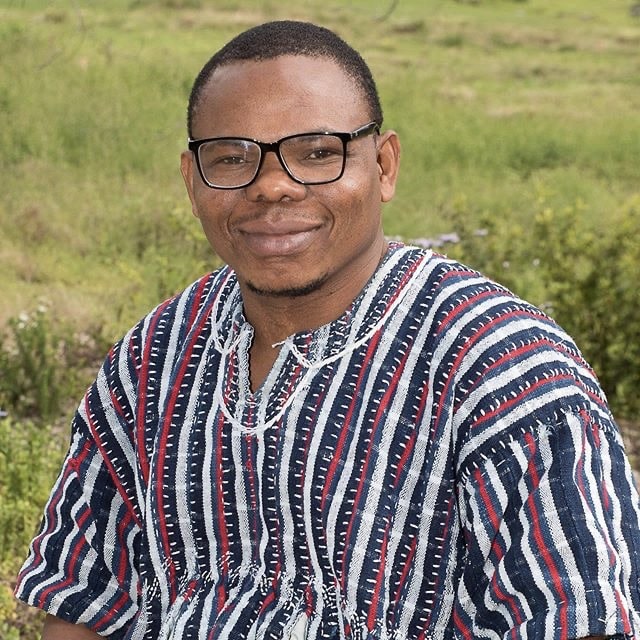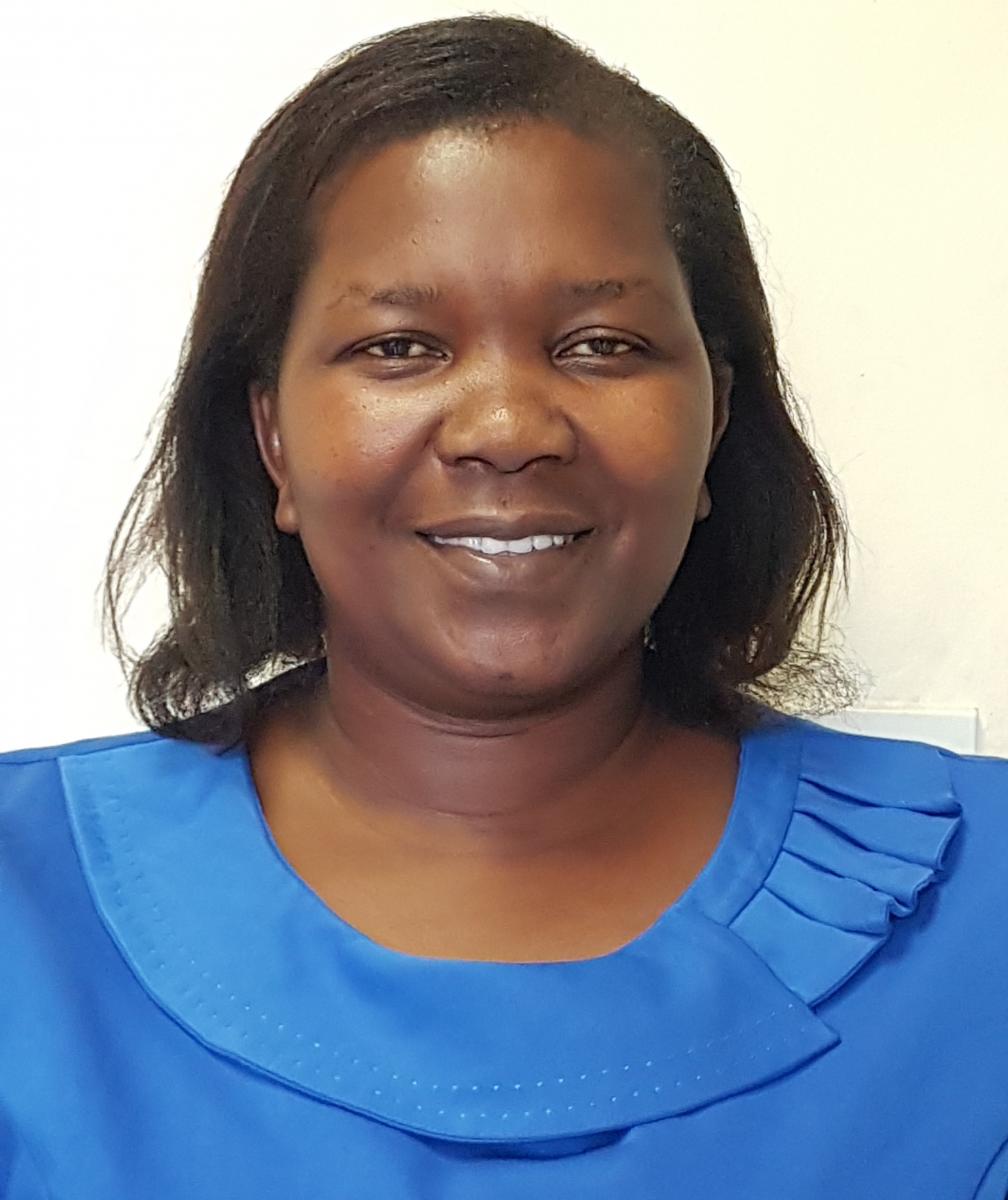Second Cohort of IUSSP Early Career Research Fellows on Urban FP
Congratulations to the second cohort of twelve fellows who were recently selected to carry out research on Family Planning, Fertility and Urban Development as part of an IUSSP project funded by the Bill and Melinda Gates Foundation. They were selected by the IUSSP Scientific Panel on Family Planning, Fertility, and Urban Development following a workshop organized in Entebbe, Uganda in November 2019. Below is a short biography of each fellow with a description of their project.
The fellowships are part of a 4-year project (2018-2022) to produce policy-relevant evidence on the effects of family planning and fertility change on urban welfare. The grant has provided fellowships to 16 early career researchers in sub-Saharan Africa. The project includes mentoring and training activities as well as funds for policy outreach at local, national and international levels. The ultimate aim of the project is to raise awareness of the contributions of family planning to sustainable cities among urban planners and policy makers and to put family planning on the urban policy agenda where it has been largely absent.
Meet the researchers
Dr. Sunday Adedini, University of the Witwatersrand on Family planning and urban development in Nigeria: Exploring the policy and programmatic gaps
Dr. Sunday Adedini is a health demographer with more than 12 years of teaching and research experience in universities in Nigeria and South Africa. He currently heads a team of demographers at the South African Medical Research Council Respiratory and Meningeal Pathogen Research Unit, University of the Witwatersrand, Johannesburg, South Africa. Dr. Adedini is a recipient of several academic laurels and fellowships, including Fogarty Foundation Postdoctoral Fellowship, CARTA PhD Fellowship, BIARI Fellowship, Wits University Postgraduate Merit Award, Exceptional Research Outputs Award of the Faculty of Health Sciences, Wits University, amongst others. His research interests are in the areas of maternal and child health, reproductive health, and family demography.
As more people now live in urban areas than in rural communities in Nigeria, urban development (UD) requires urgent policy and programmatic attention. Although population has been identified as an important factor in achieving national development goals, and evidence shows that meeting the family planning (FP) and reproductive health needs of vulnerable urban populations can help achieve population growth rates consistent with building sustainable, habitable and prosperous urban settings, FP remains a neglected subject in UD goals in Nigeria. Currently little systematic information exists on the extent to which Nigeria’s FP blueprint is being domesticated and the evidence base on barriers to integrated policy formulation and implementation of FP and UD programs in Nigeria is weak.
Against this background, Dr. Adedini’s study aims to address the following questions: (i) To what extent is Nigeria’s FP blueprint being domesticated in urban planning and development initiatives? (ii) What are the barriers to integrated policy formulation and implementation of FP and UD programs in Nigeria? (iii) In what ways can urban planners and other relevant stakeholders make FP a priority subject in urban planning and development goals? The emerging results from this study will be useful for policymakers and program implementers in the efforts to improve FP in the urban contexts in Nigeria. A very similar study by another Fellow, Ferdinand Okwaro, on Kenya is expected to allow some comparative analysis between the two countries.
Dr. Nurudeen Alhassan, African Institute for Development Policy (AFIDEP) on Leveraging Family Planning for Sustainable Urbanisation in Malawi
Dr. Alhassan’s study will generate evidence on the demand for family planning (FP) with modern contraceptives among urban women in Malawi, assess the potential impact of increasing contraceptive uptake on urban development and examine the extent to which FP is prioritised and integrated into development plans, policies and in the operations of two city councils—Lilongwe and Mzuzu city councils.
Modern contraceptive prevalence in urban Malawi has increased significantly over the last 25 years, yet, intra-urban disparities in access to modern contraceptives persist. Lower levels of demand for FP satisfied with modern contraceptives are reported among adolescents and sexually active unmarried women. National urban policy and city councils do not prioritise FP. Urban policy makers and city authorities rarely understand the benefits of FP to critical aspects of urban life such as education, health and transport. This lack of understanding and lack of prioritisation of FP in urban development makes it difficult to extend FP services to the most marginalized and underserved urban women.
Using data from the 2015/16 Malawi DHS, this study will identify the categories of sexually active urban women with low demand for FP satisfied with modern contraceptives. The study will also use scenario modeling to simulate the impact of FP on key development outcomes including education, health and wellbeing and sustainable cities. In addition, the study will analyse urban policies and development plans to examine the extent to which they integrate FP. Case studies of the integration of FP into city and municipal development plans and operations will be conducted in Lilongwe and Mzuzu city councils. Key informant interviews will be conducted with policymakers to explore their views on FP, how they use population data and ways of integrating FP into urban development plans and policies.
The results of this study are expected to help secure buy-in and support from policymakers and municipal councils for the prioritisation and integration of FP into urban development plans and operations of city and municipal councils.
Dr. Adriana Biney, Regional Institute for Population Studies (RIPS) at the University of Ghana, Exploring use, non-use and discontinuation of modern contraception among urban youth in Accra, Ghana
Dr. Adriana Biney is a Lecturer at the Regional Institute for Population Studies (RIPS) at the University of Ghana, where she received her PhD in Population Studies in 2013. Her research interests span issues on health and wellbeing among the deprived and marginalized in Ghana.
Her study will qualitatively explore contraceptive use and non-use among three categories of sexually active young people in Accra, Ghana.
The importance of preserving young people’s sexual and reproductive health and rights cannot be underestimated, especially when it can contribute to a nation’s development and the harnessing of a demographic dividend. Therefore, this study seeks to examine issues pertaining to discontinuation and non-use of modern contraception, among sexually active youth (ages 18 to 24) in Accra, Ghana, using a qualitative approach. In-depth relationship and contraception life history interviews will be conducted to understand young people’s contraception experiences and personal barriers to contraceptive use as well as focus group discussions to explore contraceptive non-use among youth in distinct social contexts. Study participants will include youth in higher education, apprenticeships and informal employment. This will enable an understanding of the dynamics in contraceptive non-use and discontinuation among youth in these socio-economic groups, some more disadvantaged than others, but all considered to be at high risk of experiencing unintended pregnancies.
The Greater Accra Region, which includes the capital city of Ghana, is the most urbanized region of Ghana, but currently has the lowest prevalence of use of modern methods despite the lowest fertility rate of 2.8 births per woman. Accra is also characterized by high youth concentrations driven by in-migration, resulting in slum formation in parts of the city. Investigations accounting for these dynamics are needed as they have implications for national development. The study’s findings will contribute to the existing literature and policy to help understand and provide the means of addressing low contraceptive prevalence among various groups of sexually active youth in Ghana.
Dr. Moussa Bougma, Institut Supérieur des Sciences de la Population (ISSP), Université Joseph Ki-Zerbo, on Fertility stagnation in Ouagadougou : the role of rural immigration and social mobility.
Moussa Bougma received his PhD in Demography from the Université of Montreal (Canada) in 2015. He is currently a researcher and assistant professor of demography at the l’Université Joseph Ki-Zerbo. He is head of the Research Unit on Population and Education at the Institut Supérieur des Sciences de la Population (ISSP) and President of the Burkina Faso Association of Demographers (ABDem)
Dr. Bougma’s research project examines the role of rural immigration and the limited social mobility of rural-to-urban migrants on the stagnation of fertility decline in the capital city of Ouagadougou. Over the past several years, the decline in the fertility rate of Ouagadougou, much like other African cities, has slowed, and even stagnated; the causes remain unknown and little studied.
At the same time, the city has undergone rapid urbanization leading to the development of vaste areas of spontaneous settlements. Compared to other areas of the capital, these zones are distinguished by precarious housing and limited access to basic social services, suggesting important socio economic differences including bahaviour related to fertility. In this context, can the slowing decline of the fertility rate be attributed to certain social groups?
This question is relevent in the context of Ouagadougou because if all the sociecomonic groups in the city do not contribute equally to the drop in the fertilty rate, it will be difficult to expect that the benefits of a demographic dividend will be in turn equally shared by all. Using 4 sources of complementary quantitative data collected by the Ouagadougou Demographic Surveillance System along with primary qualitative data, the research will contribute to a better understanding of the underlying reasons for fertilty rate stagnation in Ouagadougou, in order to propose appropriate interventions to bring about greater equity in the drop in fertility rates among all social categories. The work of another ISSP Fellow, Idrissa Ouili, is also on Ouagadougou, and these combined efforts are expected to help multiply the policy impact of this study.
Dr. John Ganle, School of Public Health, University of Ghana on Identifying and developing low-cost and acceptable family planning interventions and service delivery models for urban slums in Ghana
He is a recipient of a number of internationally and locally competitive research grants and fellowships, including a one-year Radcliffe Fellowship at the Radcliffe Institute for Advanced Study, Harvard University. He has also been a consultant on a number of maternal and child health projects in Ghana, including the Reducing Maternal Mortality and Morbidity (R3M) programme and The Hunger Project’s (Ghana) Maternal and Child Healthcare Improvement Project (Phase II). He is also an academic editor for the journal PLOS ONE, and a member of the Global Young Academy.
Dr. Ganle’s project aims to identify and develop low-cost and acceptable family planning interventions and service delivery models for urban slums in Accra, Ghana. Within current scholarly and programmatic literature, there is consensus that many slum dwellers in Africa have the most difficulty accessing basic services, including family planning (FP) services. At the same time, there are limited workable interventions/models for reaching slum communities with FP services in many low-income settings. Poor access to FP services in slums could negatively affect overall urban development via high fertility, rapid population growth and urbanisation, increased demand for urban services, and poor health outcomes. To address this gap, the following research questions will be examined using Accra as the focus:
1. What FP interventions and service delivery models currently exist in urban Africa, and how effective are existing interventions/service delivery models in increasing access to FP services? 2. What are the FP needs of slum populations, and how could existing FP interventions/service delivery models in urban Africa be adapted to provide low-cost and acceptable FP services to meet the needs of slum populations? 3. What new and innovative FP interventions/service delivery models are required to provide low-cost and acceptable quality FP services to meet the needs of slum populations? 4. How could a public-private partnership (e.g. government-NGO partnership) be developed to provide quality and affordable FP services to slum populations? 5. What policy and material resource changes are required for effective implementation of different FP interventions/services delivery models in urban slums?
Dr. Eliphas Gitonga Makunyi, Kenyatta University on Family planning among blended Somali Women aged 15 -39 years in Nairobi: Barriers and Inequalities in Nairobi City, Kenya
Dr. Eliphas Gitonga Makunyi is a lecturer of reproductive health at Kenyatta University, in the School of Public Health. He graduated with a PhD in reproductive health from Kenyatta University in 2018. His research interests are reproductive health in urban populations and vulnerable/marginalized communities.
Dr. Gitonga Makunyi will study urban family planning (barriers/inequalities) among Somali women in Nairobi City, Kenya. With an annual growth rate of 4%, Nairobi city, the Kenyan capital, is one of the fastest growing cities in sub-Saharan Africa and is projected to increase in size to five million residents by 2025. Such rapid urban growth has a negative influence on the health of vulnerable populations such as slum dwellers, adolescents, orphans and refugees. Most of the health indicators among the Somali women are poor coupled with vulnerability of some being refugees. Vulnerable women have increased risks of rape, unintended pregnancy, miscarriage, and unsafe abortion and may lack access to quality family planning services. Family planning is critical to achieving SDG 11 (sustainable cities) and improving the human rights of women, enabling them to choose the number of children they bear and their timing and spacing.
The study population of Somali women aged 15-39 years in Nairobi includes indigenous Kenyans and refugees from Somalia. The study aims to assess the utilization, barriers and inequalities in access to family planning services. A household survey of 600 women will be undertaken with Somali female research assistants to examine family planning services and urbanization linkages. The information will bridge the policy gap on family planning and urban linkages among vulnerable populations with poor health indicators and outcomes. Key stakeholders will be engaged, and targeted policy communication will be carried out during the project to reach urban planners, reproductive health policy makers, refugee managers and community leaders.
Dr. Francis Levira, Ifakara Health Institute, Tanzania, on Impact of HIV-FP service integration on urban fertility among HIV positive women
Dr. Levira’s research will evaluate how family planning is integrated within HIV care and treatment services and how service integration influences contraceptive use, fertility and fertility outcomes among HIV positive women in Dar es Salaam and Dodoma, Tanzania. The rationale for this research is to generate evidence on the potential for integrated family planning and HIV care services to improve the health of mothers and their newborns, as well as improve household welfare in urban Tanzania.
HIV positive women constitute a special group in the population that requires comprehensive access to family planning (FP) services. FP is recognized by World Health Organization (WHO) as an important cost effective intervention for prevention of mother to child transmission of HIV by averting unintended pregnancies.
The proposed study will address evidence gaps on the consequences of poor access to contraception on the fertility, pregnancy outcomes, and household welfare of HIV positive women on anti-retroviral therapy (ART) in urban Tanzania. The findings of this analysis are expected to be useful for policy and practices designed to strengthen the integration of FP into HIV care and reduce inequalities in access to FP.
The adoption of HIV test and treat policy in sub-Saharan African is expected to extend life expectancy and improve reproductive health and outcomes among HIV positive women. These benefits can only be achieved if HIV positive women can control their fertility through the use of modern contraceptive methods.
Dr Abiba Longwe-Ngwira, International Training and Education Center for Health (I-TECH) in Malawi on Intra-Urban Variations in Postpartum Family Planning Access and Utilization in Malawi: Evidence from a Randomized Control Trial
Dr. Longwe-Ngwira’s study will examine the socio-economic differentials in urban women’s access to postpartum family planning (PPFP) services in Malawi. Studies have documented the urban–rural dichotomy in utilization of family planning and maternal health care in developing countries; however, little is known about the variation and emerging inequality in access to and utilization of these services within urban settings.
Using data from the Malawi Family Planning Study (2016-2019) conducted in Lilongwe, she will 1) assess the level of intra-urban variation in women’s PPFP access and 2) explore key determinants of women’s PPFP utilization. The findings provide evidence to guide decision makers at both national and subnational levels on investments in family planning targeting vulnerable populations within urban residential areas. The sample consists of married women aged 18-35 from urban Lilongwe, Malawi, who participated in a family planning field experiment. Data analysis will utilize descriptive statistics, multivariate fixed effects logit models and discrete choice models.
Despite tremendous reduction in total fertility rate and improvements in modern contraceptive use, unmet need for family planning to space and limit births remains high in Malawi. The consequences of high fertility and unmet need are likely to be worse in urbanizing settings, which leads to adverse health outcomes. Malawi is predominantly rural, hence development policies emphasize rural development. However, urbanization is unlikely to be reversed, and it is imperative that development policies focus on ensuring that growing urban populations have access to essential services, including family planning.
Dr. Abdoul Moumouni Nouhou, Initiative OASIS (Niger), on Barriers to accessing family planning in Niamey: quality of services or women’s motivation
Dr. Nouhou’s study will examine the barriers to contraceptive use in Niamey. Despite real advances, Niger missed its objective of achieving a contraceptive prevalence rate of 50% in 2020, a commitment made in the context of the Ouagadougou Partnership. Today efforts have turned toward creating demand through the mobilisation of new users of modern contraceptives. Understanding the factors behind the contraceptive practices of populations living in peripheral areas of urban centres can contribute to this objective.
The underlying hypothesis of his study is that the level of contraceptive use in peripheral neighbourhoods of Niamey is explained by a combination of the quality of family planning services and the level of women’s motivation to plan births (pregnancies). He plans to analyse data from the Performance Monitoring for Action (PMA) surveys on the quality of family planning services in 27 service sites distributed among the five health districts of Niamey. The analysis will be complemented with qualitative information on women’s motivations to space or limit births as well as their level of satisfaction with family planning services received.
The results will contribute to improve protocols for identifying family planning needs. This work could also help relaunch the debate over the role of communication on family planning matters in conservative contexts such as Niger.
Dr. Elizabeth Oele, Kisumu County Department of Health, on Fertility preferences and contraceptive use among women of reproductive age in an informal settlement, Kisumu, Kenya.
Using the CHAMPS platform, Dr. Oele will document the fertility preferences and contraceptive use among women of reproductive age residing in Manyatta, the largest informal settlement in Kisumu. Between 2003 and 2014, fertility in Kenya decreased from 4.9 to 3.9 births per woman. The total fertility rate (TFR) in Nyanza Region, where Kisumu is located, however, remains high at 4.3 and 23% of married women had unmet need for family planning (FP). The region also has the highest under-5 mortality rate among all regions in Kenya.
The study will provide baseline data on fertility characteristics of women in this informal settlement. Dr. Oele will collect information on fertility preferences, current FP choice and satisfaction with method and services. Using current FP choice as the dependent variable, regression analysis will be used to identify factors associated with specific FP use.
The findings can be used to quantify and correlate unwanted and mistimed births to child health outcomes such as immunization, malnutrition and mortality. With this information, the Department of Health will be able to advocate for appropriate FP commodities and health education on FP types and availability for the women in this community. As part of the project, Dr Oele will engage with policy makers at various levels to ensure the use of study findings in decision making.
Dr. Ferdinand Okwaro, Aga Khan University, on Family Planning and Urban Development in Kenya: Exploring the Policy and Programmatic Gaps and opportunities for intersection
Dr. Okwaro’s project explores the policy and programmatic gaps in Family planning (FP) and Urban Development with a view to identifying intersections and points of convergence that can be exploited for effective policy formulation and implementation in the county of Nairobi, Kenya, focussing on the urban poor living in informal settlements.
Kenya has a devolved system of government comprising the national government and 47 units or counties. Nairobi is the largest county with a population of 4.4 million, 56% of who live in informal settlements, according to the 2019 Kenya population and housing national census. Since the Kenyan constitution stipulates that resources be allocated based on population numbers, Nairobi County receives the largest proportion of national resources to provide services. Moreover, Nairobi hosts a number of local and international nongovernmental institutions, including UN-Habitat, that support the government’s multi-sectoral approach to provision of essential services. Nairobi county thus provides an opportune setting for this study which explores policy planning and programme implementation in family planning and urban development, examining the ways in which the multi-sectoral approach operates in a devolved system of governance where policy planning and implementation are executed by different tiers of government.
Through a focus on the barriers to the integration of family planning and urban development policies and programmes, the study examines the evolution of policies and budgetary flows and the abilities of each tier of government to raise resources, as well as the gaps that emerge along the policy formulation-policy implementation trail to suggest ways to create synergies. This will be done through a finely grained analysis of current and past policy documents, Key Informant Interviews (KIIs) with policy formulators and implementation stakeholders and a monitoring of public debates by policy makers and implementers in the two sectors.
The findings from this study are expected to shed light on the evolution of policies in FP and Urban development and the logic and evolution of budgets proposing ways in which synergies can be created for effective policy formulation and implementation. A very similar study by another Fellow, Sunday Adedini, on Nigeria is expected to allow some comparative analysis between the two countries.
Dr. Idrissa Ouili, Institut Supérieur des Sciences de la Population (ISSP), Université Joseph Ki Zerbo, Burkina Faso, on Fertility and multidimensional child poverty: Intra urban disparities in Ouagadougou.
His project will focus on fertility and multidimensional child poverty in Ouagadougou. The general objective of this project is to study the impact of fertility on multidimensional child poverty in a context of high urbanization (with a heterogeneous urban population) associated with persistently high fertility in Ouagadougou , the capital of Burkina Faso. He will specifically investigate which dimensions of the child multidimensional poverty index are most affected by high fertility in formal and informal settlements of Ouagadougou, and the role that family planning could play in reducing multidimensional child poverty. This research should result in policy recommendations to city authorities for a better synergy among urbanization, fertility and family planning needs. The work of another Fellow from ISSP, Moussa Bougma, is also on Ouagadougou, and these combined efforts are expected to help multiply the policy impact of this study.
|


 Dr. Nurudeen Alhassan is a Research and Policy Analyst at the African Institute for Development Policy (AFIDEP). He received his PhD in Population Studies from the University of Ghana in 2017. His research interests are in gender dynamics, sexual and reproductive health and rights and urban development.
Dr. Nurudeen Alhassan is a Research and Policy Analyst at the African Institute for Development Policy (AFIDEP). He received his PhD in Population Studies from the University of Ghana in 2017. His research interests are in gender dynamics, sexual and reproductive health and rights and urban development. 

 Dr. Ganle is a lecturer in the Department of Population, Family and Reproductive Health, School of Public Health, University of Ghana. He received his doctoral training in Public Health from the University of Oxford. His research interests are mainly in maternal and child health; abortion and contraceptive behaviour; gender and health; and the intersection between disability, sexuality and reproductive health.
Dr. Ganle is a lecturer in the Department of Population, Family and Reproductive Health, School of Public Health, University of Ghana. He received his doctoral training in Public Health from the University of Oxford. His research interests are mainly in maternal and child health; abortion and contraceptive behaviour; gender and health; and the intersection between disability, sexuality and reproductive health.
 Dr. Francis Levira is research scientist within the Department of Health Systems Impact Evaluation and Policy at Ifakara Health Institute in Tanzania. He is trained as biostatistician, epidemiologist, and Monitoring and Evaluation specialist with interest in reproductive health, population health surveillance, mortality and fertility analysis, and monitoring and impact evaluation of program and policy interventions. He has worked with Ifakara Health Institute for over 12 years. Dr. Levira has participated in several evaluations including: Health Sector Strategic Plan (HSSP III), Tanzania Countdown Case Study for Maternal and Newborn Health, and DFID’s Reproductive and Maternal Health Supplies Programme. He is skilled in the management and analysis of large datasets generated from population-based and clinical studies, clinical trials, observational studies and large surveys.
Dr. Francis Levira is research scientist within the Department of Health Systems Impact Evaluation and Policy at Ifakara Health Institute in Tanzania. He is trained as biostatistician, epidemiologist, and Monitoring and Evaluation specialist with interest in reproductive health, population health surveillance, mortality and fertility analysis, and monitoring and impact evaluation of program and policy interventions. He has worked with Ifakara Health Institute for over 12 years. Dr. Levira has participated in several evaluations including: Health Sector Strategic Plan (HSSP III), Tanzania Countdown Case Study for Maternal and Newborn Health, and DFID’s Reproductive and Maternal Health Supplies Programme. He is skilled in the management and analysis of large datasets generated from population-based and clinical studies, clinical trials, observational studies and large surveys. Dr. Abiba Longwe-Ngwira is a Director of Research, Monitoring and Evaluation at International Training and Education Center for Health (I-TECH) in Malawi. Dr Longwe-Ngwira has a PhD in Management Sciences (Economics) obtained at Radboud University Nijmegen, The Netherlands in 2013. She has expertise in quantitative methods and application of microeconomics and econometric analytical tools for analyzing large datasets in health and agricultural sectors. Her research focuses on the interactions of population dynamics, poverty alleviation, and socio-economic development in Africa.
Dr. Abiba Longwe-Ngwira is a Director of Research, Monitoring and Evaluation at International Training and Education Center for Health (I-TECH) in Malawi. Dr Longwe-Ngwira has a PhD in Management Sciences (Economics) obtained at Radboud University Nijmegen, The Netherlands in 2013. She has expertise in quantitative methods and application of microeconomics and econometric analytical tools for analyzing large datasets in health and agricultural sectors. Her research focuses on the interactions of population dynamics, poverty alleviation, and socio-economic development in Africa.  Abdoul Moumouni Nouhou received his Ph.D. in Demography from the University of Geneva, Switzerland in 2016. He is currently a researcher at Initiative OASIS Niger. His research focuses on questions related to reproductive health, the education of girls, and the empowerment of individuals in the sub-Saharan context. He also has experience in the design, implementation and evaluation of population, health and education programs. Dr. Nouhou also works on projects that seek to support local leadership (Programme de Leadership au Sahel), professional internships and orientations for students (Programme Femmes dans le développement) and the promotion of research and innovation (Séminaires méthodologiques en sciences sociales). These projects are carried out in collaboration with several universities such as the Université Joseph Ki-Zerbo, l’Université Abdou Moumouni de Niamey and the Université de Zinder.
Abdoul Moumouni Nouhou received his Ph.D. in Demography from the University of Geneva, Switzerland in 2016. He is currently a researcher at Initiative OASIS Niger. His research focuses on questions related to reproductive health, the education of girls, and the empowerment of individuals in the sub-Saharan context. He also has experience in the design, implementation and evaluation of population, health and education programs. Dr. Nouhou also works on projects that seek to support local leadership (Programme de Leadership au Sahel), professional internships and orientations for students (Programme Femmes dans le développement) and the promotion of research and innovation (Séminaires méthodologiques en sciences sociales). These projects are carried out in collaboration with several universities such as the Université Joseph Ki-Zerbo, l’Université Abdou Moumouni de Niamey and the Université de Zinder. Dr. Elizabeth Oele is currently working as a medical epidemiologist with the Kisumu County Department of Health. The Department is a co-implementer of the Child Health and Mortality Prevention Surveillance (CHAMPS), a global project providing real time data on child mortality that is being implemented in the health and demographic surveillance site of Manyatta, an urban informal settlement in Kisumu City.
Dr. Elizabeth Oele is currently working as a medical epidemiologist with the Kisumu County Department of Health. The Department is a co-implementer of the Child Health and Mortality Prevention Surveillance (CHAMPS), a global project providing real time data on child mortality that is being implemented in the health and demographic surveillance site of Manyatta, an urban informal settlement in Kisumu City.  Dr. Ferdinand Okwaro is a research fellow at the Aga Khan University’s Centre of Excellence in Women and Child Health. He has a background in Medical Anthropology with a PhD from the University of Heidelberg, Germany, and Master and Bachelor degrees in Anthropology from the University of Nairobi. Prior to joining the Aga Khan University, Dr. Okwaro held a 3-year post-doctoral research fellowship at Oslo University, on a project examining the practice and ethics of collaboration in transnational medical research in East Africa, funded by the Norwegian Research Council. This project was preceded by a 2-year postdoctoral research fellowship at the London School of Hygiene and Tropical Medicine (LSHTM) that was funded by the Wellcome Trust. Dr. Okwaro has conducted research in various fields including policy analysis, ritual healing and alternative medical practices, reproductive health and social marketing.
Dr. Ferdinand Okwaro is a research fellow at the Aga Khan University’s Centre of Excellence in Women and Child Health. He has a background in Medical Anthropology with a PhD from the University of Heidelberg, Germany, and Master and Bachelor degrees in Anthropology from the University of Nairobi. Prior to joining the Aga Khan University, Dr. Okwaro held a 3-year post-doctoral research fellowship at Oslo University, on a project examining the practice and ethics of collaboration in transnational medical research in East Africa, funded by the Norwegian Research Council. This project was preceded by a 2-year postdoctoral research fellowship at the London School of Hygiene and Tropical Medicine (LSHTM) that was funded by the Wellcome Trust. Dr. Okwaro has conducted research in various fields including policy analysis, ritual healing and alternative medical practices, reproductive health and social marketing.  Dr. Idrissa Ouili, completed doctoral studies in Economics at University of Montreal (Canada) and is assistant professor at Institut Supérieur des Sciences de la Population (ISSP) of Université Joseph Ki Zerbo. He directs the Ouagadougou Health and Demographic Surveillance System (Ouaga HDSS). He also has a master's degree in Statistics and Econometrics from University of Toulouse (France). His expertise lies in econometric analysis of population issues (education, poverty, family planning and reproductive health) and impact evaluation of population and reproductive health programs and policies. His research interests include methods to measure inequality and multidimensional poverty and assess their effect on education, health and family planning in developing countries. He is also interested in conflicts and their effects on child outcomes.
Dr. Idrissa Ouili, completed doctoral studies in Economics at University of Montreal (Canada) and is assistant professor at Institut Supérieur des Sciences de la Population (ISSP) of Université Joseph Ki Zerbo. He directs the Ouagadougou Health and Demographic Surveillance System (Ouaga HDSS). He also has a master's degree in Statistics and Econometrics from University of Toulouse (France). His expertise lies in econometric analysis of population issues (education, poverty, family planning and reproductive health) and impact evaluation of population and reproductive health programs and policies. His research interests include methods to measure inequality and multidimensional poverty and assess their effect on education, health and family planning in developing countries. He is also interested in conflicts and their effects on child outcomes.